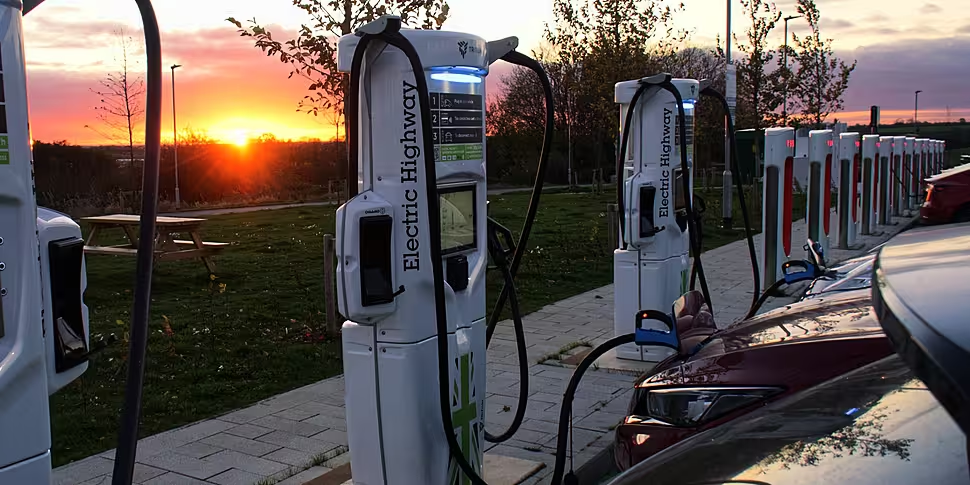People living in rural Ireland should be given bigger grants to install EV chargers at home, an expert has suggested.
A study produced by Trinity College Dublin Associate Professor at the School of Engineering Brian Caulfield found that while there is a “much lower uptake” of EVs in rural Ireland, the potential cut in carbon is much bigger.
On Newstalk Breakfast, Dr Caulfield said there are “many different” reasons for the huge rural-urban divide.
Rural vs urban
“So say, for example, when you compare Dublin to Roscommon, Dublin had about 52% of all EV sales last year, whereas Roscommon only had less than [one] percentage of EV sales.
“But if you compare the two counties in terms of the bang for your buck in terms of emissions, an EV in Roscommon could reduce emissions by 40% more than one in Dublin."
Dr Caulfield said there are a lot of policies we could look at in Ireland to encourage people in rural areas to switch over to EVs.
“For example, in Scotland, if you're living in a rural area, and by your postcode you can prove that you are, you get a much higher grant in terms of installing an EV charger at home,” he said.
“That's the type of policy I think we could look at here in Ireland to try and increase the amount of EVs [being] sold in rural Ireland.”
"Causing an issue"
The confusion about Government policy is “causing an issue”, Dr Caulfield said.
“If you look at last year's sales, that were down about a quarter on the year before, there's a couple of things that I think are coming into play,” he said.
“One, I think we might be hitting a plateau in terms of the people that want to switch over have already done so and it's maybe a harder ask to get more people across.
“But yeah, definitely the incentives are causing an issue as well and I suppose it's to try and get to people the real information on the cost of an electric vehicle…
“That's why, in another study that we're running in Trinity, we're providing people with a smartphone app that tracks them and gives them information if they switched over their petrol or diesel car to an electric car.
"That trial is ongoing now where we're calling for people to use the app.”
"Information and education"
Dr Caulfield said there has been a lot of “misinformation” around EVs over the last year.
“I think, you know, the incentives are one thing, but also, I think, in terms of information and education to get that out there,” he said.
Dr Caulfield said that the EU have “told us” at a certain date, we won’t be able to buy a petrol or diesel car, so, the change is happening and it’s “bringing everybody” with it.
Electric vehicles charging at sunset at fast motorway chargers, 21-11-21. Image: Ethan Lau / Alamy









